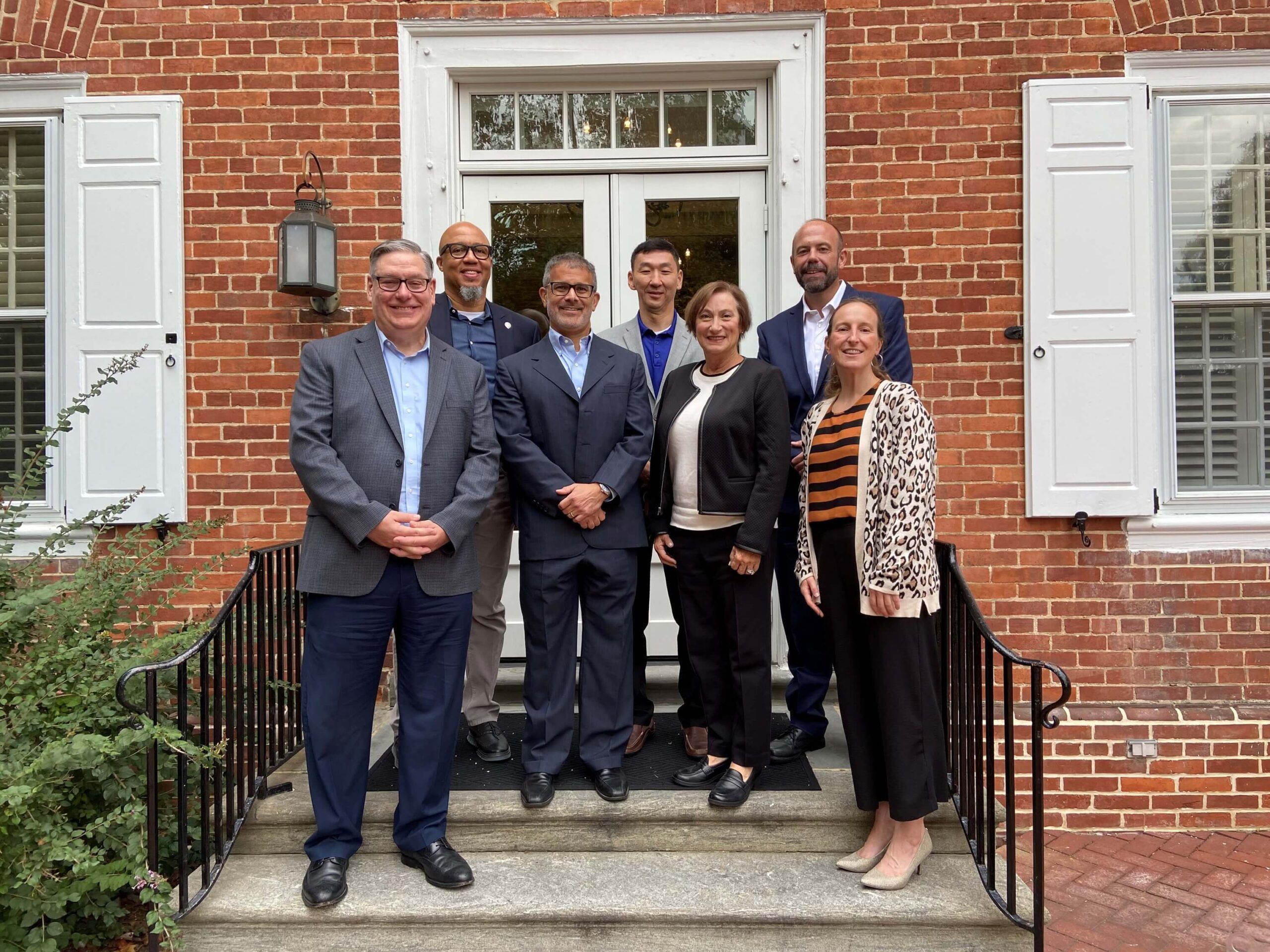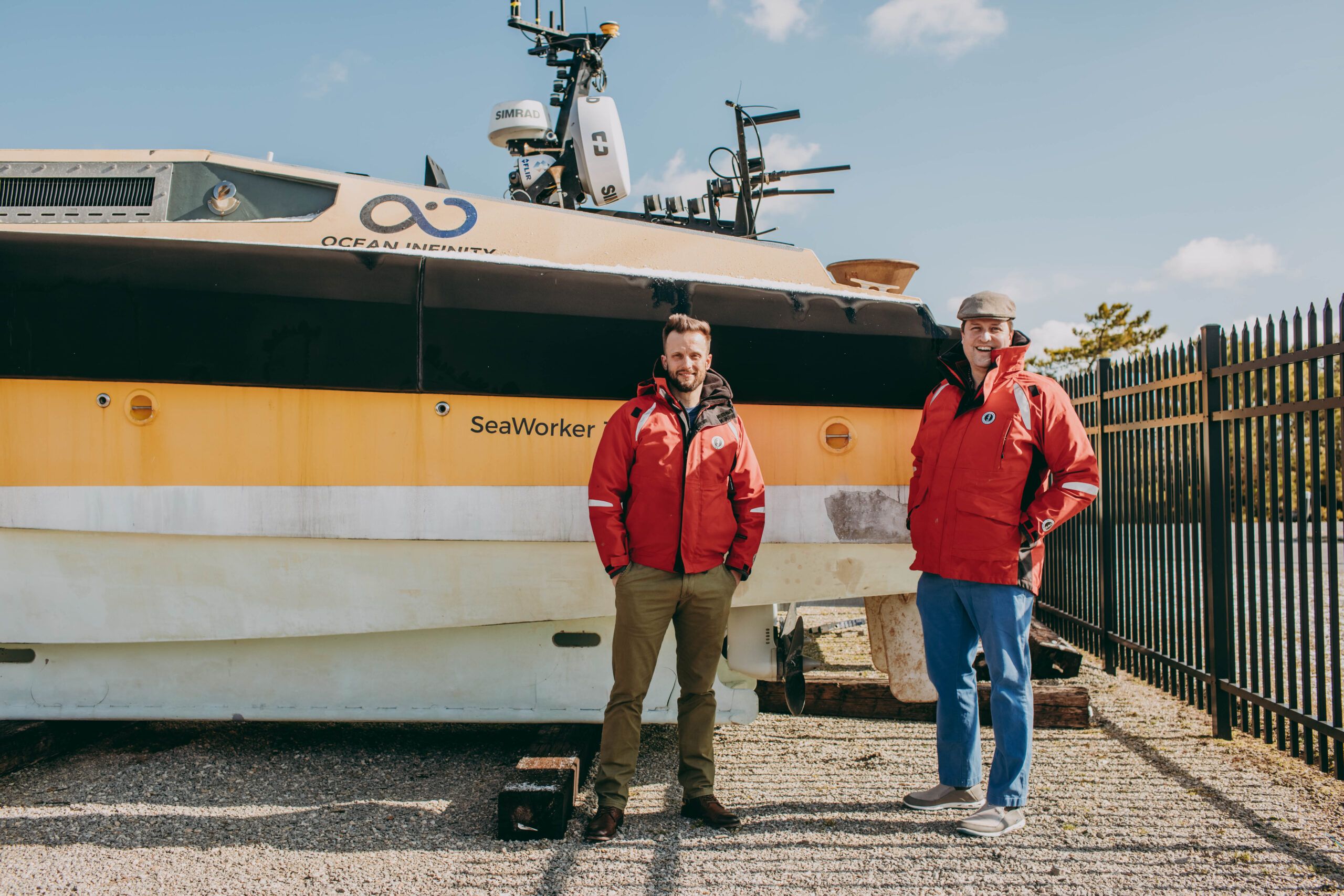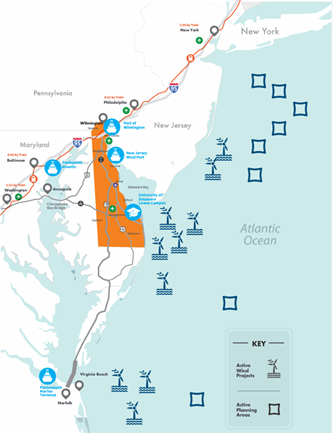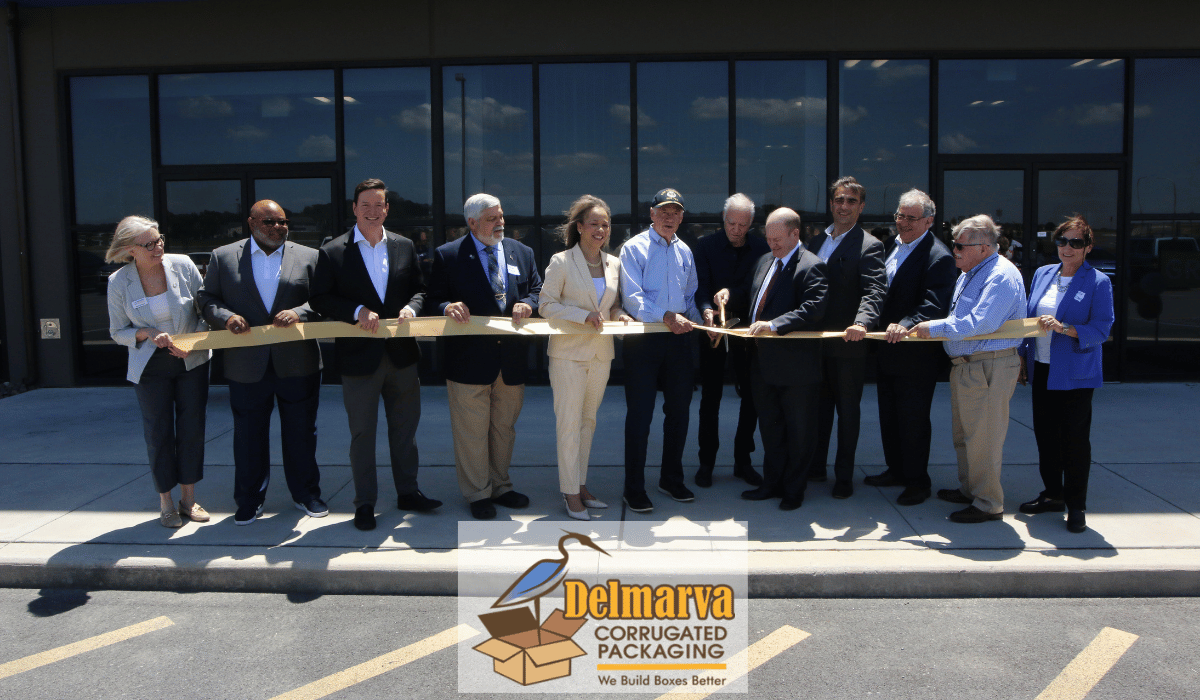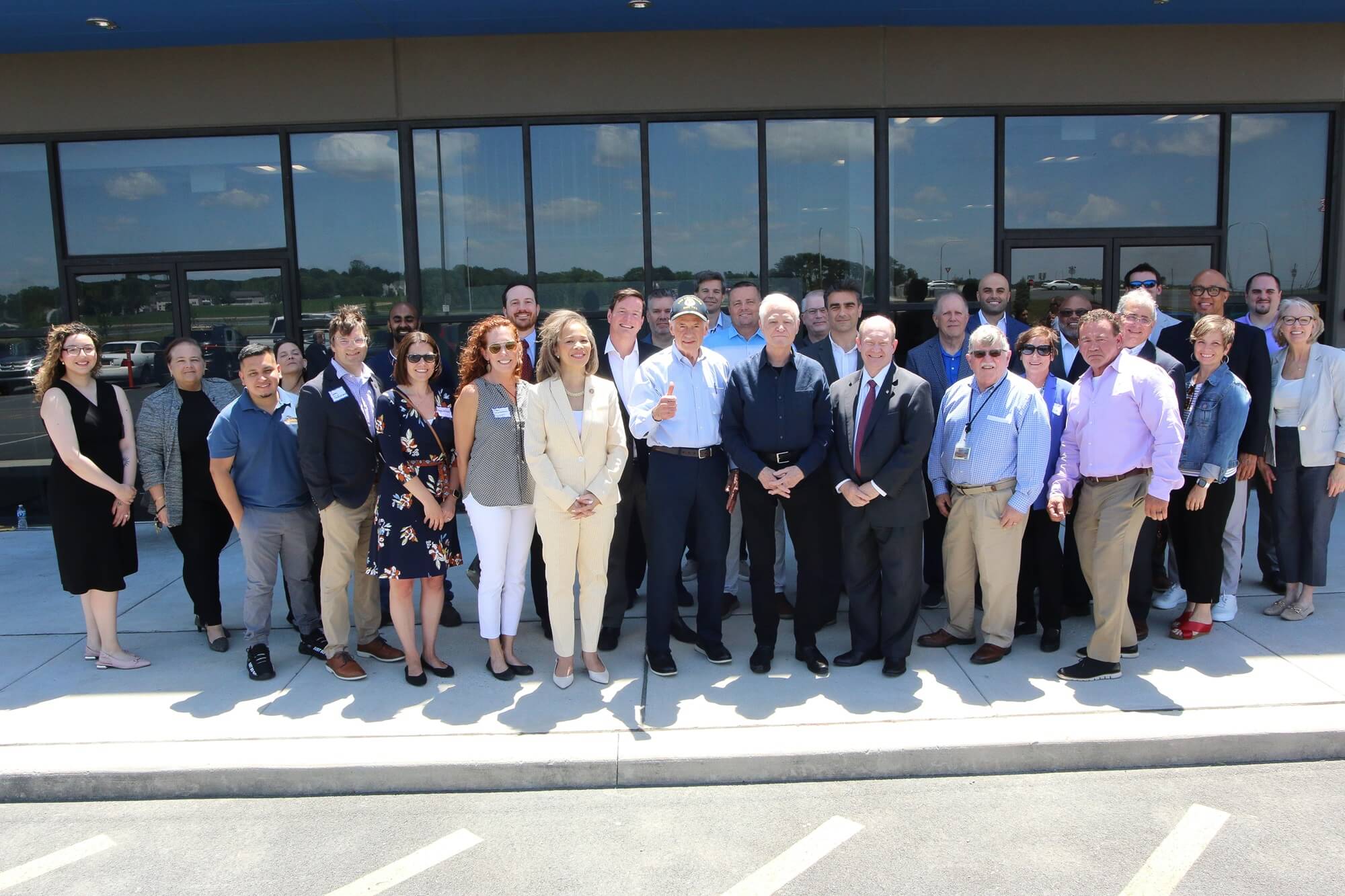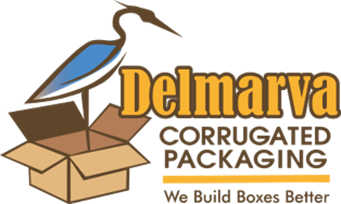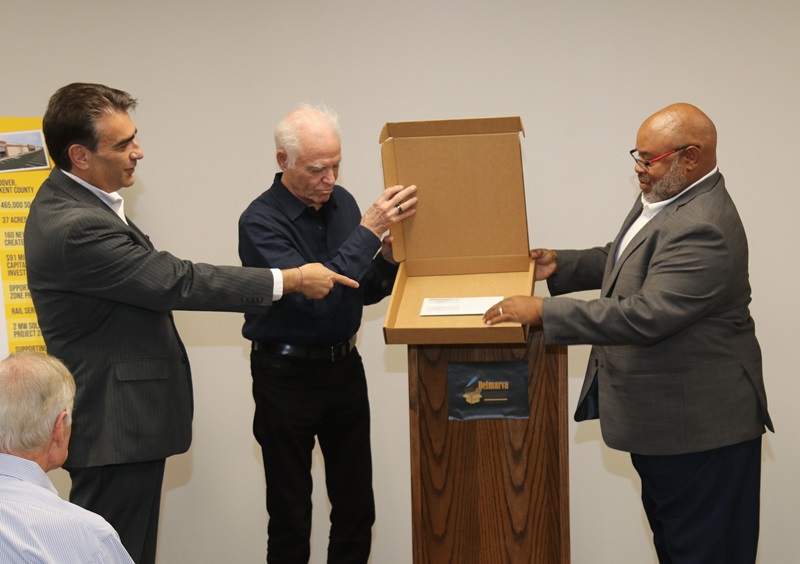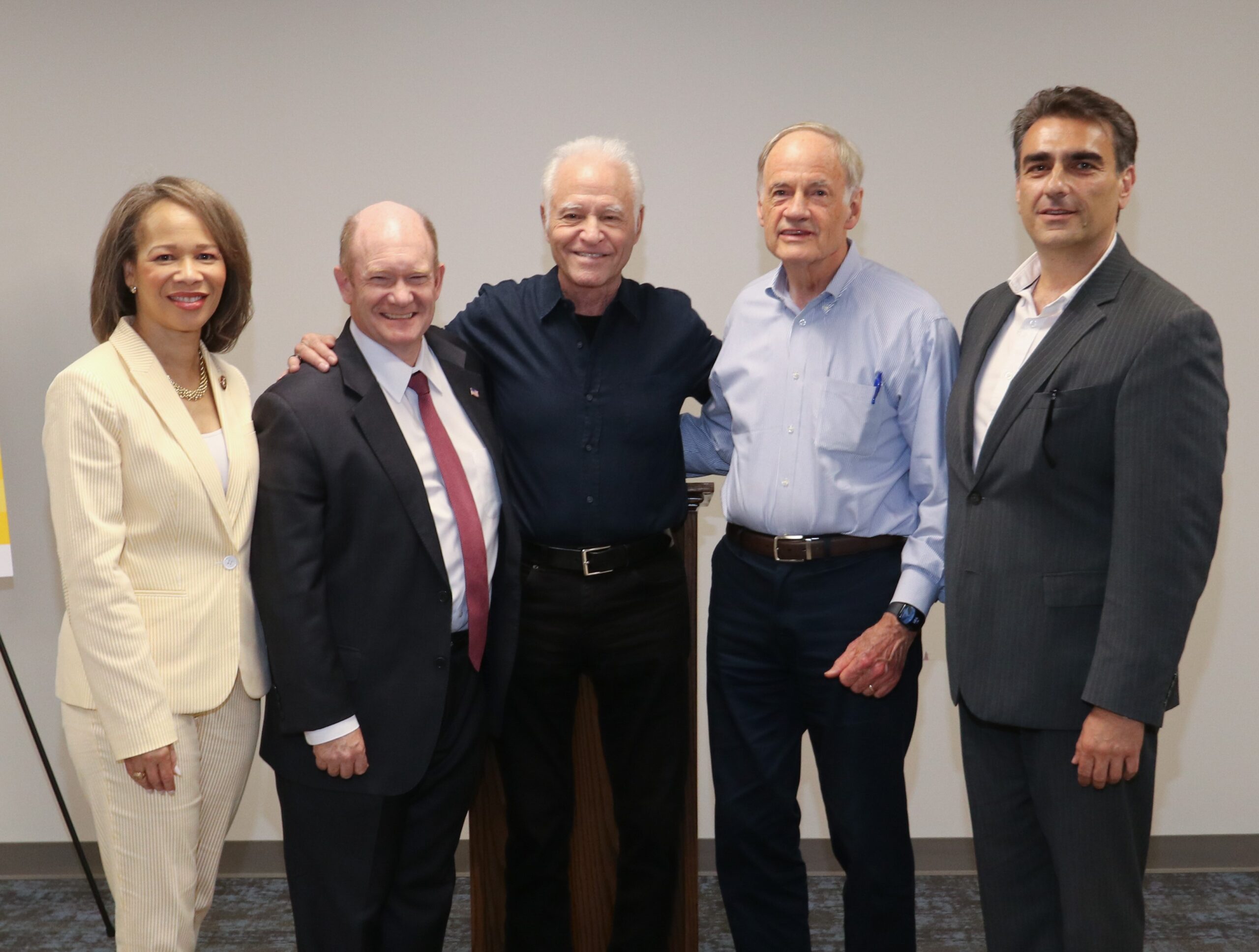Hanover Foods Investing in Clayton Site
MISI Funding Will Help Hanover Foods Upgrade Delaware Site’s Infrastructure and Equipment
DPP’s Kurt Foreman and Charles A. Madden. Hanover’s David Shaqfeh and Will Choi, KEP’s Linda Parkowski, Hanover’s Justin Prystajko and DPP’s Megan Kopistecki are shown following the Council on Development Finance meeting.
State Grant Will Support 100-Year-Old Corporation’s Investment in Over $5M in Updates at Clayton Facility
September 23, 2024
A 100-year-old producer and distributor of canned and frozen vegetables and refrigerated and canned meal products has received a Delaware Modernization Investment Support Initiative (MISI) grant to help update its plant in Clayton.
Hanover Foods Corporation has been approved for up to $1 million in funding from the state pilot program that aims to help Delaware businesses evolve and remain competitive within their industries. The company will apply the grant toward a more than $5 million project to improve its Clayton site with modernized drying and freezing infrastructure and upgraded harvesting, washing and sorting equipment.

Hanover contracts with 41 farms in Delaware and 38 farms in Maryland to have them grow peas, corn, lima beans and edamame on behalf of the company. Hanover then harvests, processes, packages and distributes the products for sale at grocery retailers across the United States. Hanover’s Clayton plant employs 55 workers year-round and adds more than 100 additional seasonal workers between May and November.
“With this investment, Hanover will be able to modernize their technology to continue operations and potentially expand,” said Governor John Carney. “Without this investment, the 100-year-old company may have made the tough decision to close their sole Delaware facility, located in Clayton. Thanks to the Delaware Prosperity Partnership (DPP) and the Kent Economic Partnership (KEP) for their effort to support existing employers that are critical to our community.”
Hanover Foods was founded as Hanover Canning Company in 1924 to assist Hanover, Pennsylvania-area farmers in packaging and distributing their produce and has grown into an industry leader in the growing, processing, packaging, marketing and distribution of a wide range of food products. The company currently has 10 domestic plants in Pennsylvania, New Jersey and Delaware and two international plants in Guatemala.
Hanover Foods is a key employer in Kent County and a vital player in Delaware’s agriculture sector. Largely because of its operations in the state, Delaware is the #1 producer of lima beans in the United States.
“Hanover Foods has a longstanding history as an integral part of the agriculture supply chain in Delaware and surrounding areas,” said KEP Executive Director Linda Parkowski. “The MISI grant will allow them to modernize and stay competitive and remain a part of Delaware agriculture for many years to come.”
The MISI pilot program was created in 2023 following a proposal by DPP and the state Division of Small Business. Up to $5 million from the Delaware Strategic Fund has been approved for distribution through the MISI pilot to help existing Delaware companies preemptively avert or reduce future potential risks to jobs and operations and encourage reinvestment toward long-term sustainability. DPP previously supported successful MISI applications from Wilmington’s High-Tech Machine Co. in 2023 and Newark’s Natural Dairy earlier this year.
KEP and DPP learned of Hanover Foods’ needs when they connected with the company through their Business Retention Engagement efforts. Both economic development organizations supported the company’s MISI funding request to the state Council on Development Finance.
“Hanover Foods has long valued our trusted partnerships with Delaware and Maryland farmers, and we are proud to be the employer of choice for our team members at our Clayton, Delaware, facility,” said David Shaqfeh, president of Hanover Foods Corporation. “We are grateful to the Delaware Prosperity Partnership, the administration of Governor John Carney and our other state and county partners for working with us to help keep Hanover Foods a strong and vibrant contributor to the local and state economy.”
###
About DPP
Created in 2017, Delaware Prosperity Partnership (choosedelaware.com) is the nonprofit public/private organization that leads Delaware’s statewide economic development efforts to attract, grow and retain businesses; build a stronger entrepreneurial and innovation ecosystem; and support private employers in identifying, recruiting and developing talent.
About Hanover Foods
Hanover Foods Corporation (hanoverfoods.com) is committed to a vision of growing, manufacturing and packaging nutritious, high-quality and affordable foods in categories across the food spectrum. The fully integrated, self-producing, American, family-owned manufacturer of frozen, canned, fresh, deli and snack foods has a passion for continuous improvement, sustainability, innovation and growth in each category.
Newsletter Sign Up
Stay Up To Date With Delaware
